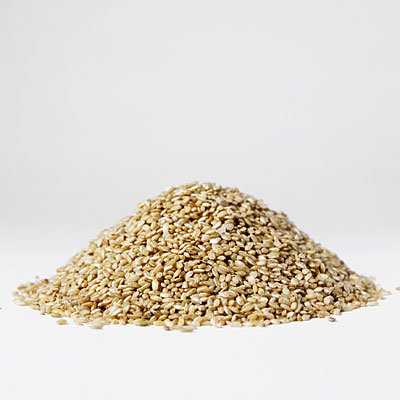Lose Weight > Weight Loss Tips > Weight Loss Articles > Calcium and Weight Loss: A Little Known Secret for Losing Weight
Calcium and Weight Loss: A Little Known Secret for Losing Weight
The key is low-fat dairy sources, says lead author Hang Shi, a postdoctoral student in the Nutrition Institute at the University of Tennessee at Knoxville. "High-fat dietary calcium can establish obesity, but it's surprising that low-fat calcium may help reduce body fat.
Currently, the weight-loss effect of calcium has been receiving a great deal of attention. More exciting is that reliable scientific research has been catching up with the observation.
Research Shows...
A 2003 study showed subjects who consumed three servings of Yoplait Light yogurt daily as part of a reduced-calorie diet lost about 20 percent more weight than those who cut calories alone.
The yogurt-eaters consumed around 1,100 mg of calcium daily. The non-yogurt eaters consumed about 500 mg of calcium a day (the average amount in the typical American's diet).
Calcium helps reduce body fat :
* Calcium increases the amount of sympathetic nervous system (SNS) stimulation. Your SNS is part of your "fight or flight" response which usually speeds things up. Calcium intake can lead to an increase in metabolism.
* High calcium levels create a binding to fat resulting in a lower fat absorption. When less fat is absorbed more is excreted.
How much calcium is enough?
* Studies show that optimal weight loss occurs in individuals who consume around 1200 mg per day along with a low fat diet.
* You should attempt to get the minimum recommended 1000 mg per day from low or non fat dairy foods.
More Calcium Helps Burn Body Fat
Edward Melanson, PhD, and James Hill, PhD, examined diet data from 35 healthy, non-obese adults during a 24-hour period and measured their daily energy expenditures. They found that those individuals who consumed more calcium used more fat as fuel compared to those with lower calcium intakes.
The idea that calcium intake may be related to body weight has been supported by several studies in the past decade. Studies in rats and mice suggest that higher calcium intake alters the metabolism of fat cells, causing less fat to be stored and more fat to be released. Whether this also occurs in humans was not known.
Milk and Health
Milk became a headline topper in June when a study published in the Journal of Epidemiology and Community Health revealed that a diet rich in milk doesn't actually increase the risk of heart disease and stroke - and may even help to prevent them! In the study, men who drank the most milk every day (more than a pint) were found to have a lower risk of heart disease and stroke than those who drank the least (less than half a pint).
Related Articles
-
Will A Personal Trainer Guarantee You To Lose Weight?
Are you convinced that youll never be able to lose weight on your own
-
How To Burn Excess Abdominal Fat Fast?
Many men and women these days have excess fat, particularly around th
-
Shrink Belly Fat Fast - Discover an Amazing Online Diet to Lose Inches Off the Belly Lighting Fast!
Would you like to shrink belly fat fast and not have to worry about re
-
Discover Exactly Why Shakeology Can Help You Slim Down
Precisely what is Shakeology? Imagine the advantages of carrot juic
-
Lose Stomach Fat in 1 Week - The Best Weight Loss System to Shrink Your Belly Easily & Quickly!
Does being able to lose stomach fat in 1 week seem like an impossible
-
Lose Weight and Burn Fat
A lot of people are looking for a great way to lose weight and burn fa
- DON'T MISS
- Losing Weight Using a Weight Loss Patch: Fact or Fiction?
- Are You Making These Common Mistakes to Get Quick Weight Loss?
- How Much Weight Has Genie Francis Lost On Medifast?
- Nutrisystem Breakfast a€“ How Does it Taste? Is It Good? What Foods Are Included?
- I Did It! Im Done Being The Fat Girl
- Lose pounds with weight loss supplements
- Essential Concerns When You Buy Best Thermogenic Fat Burners for Weight Loss
- Review Of Herbal Appetite Suppressant Pills From Health Expert
- The 3 Phases Of Hcg Treatment Explained
- Weight Loss - Personal Trainer or Personal Yoga Teacher?




